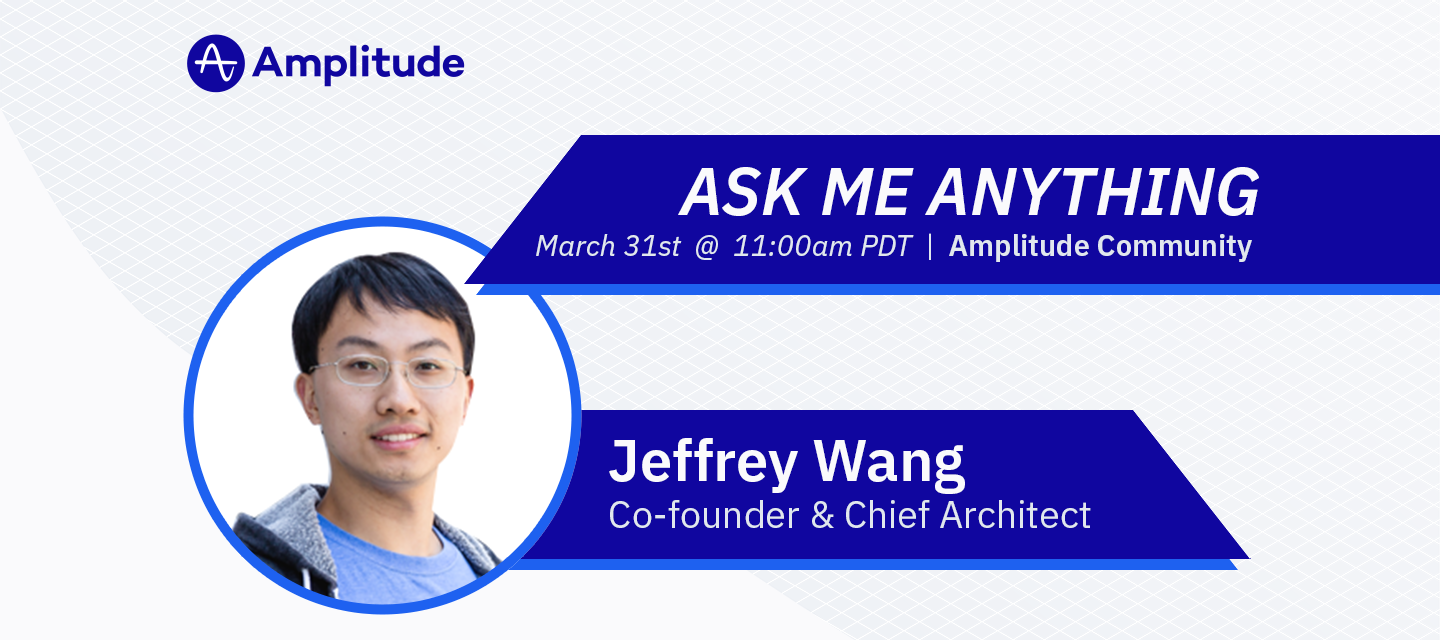Hi fellow data monsters,
I’m Jeffrey, one of Amplitude’s co-founders and chief architect. I’m hosting an Ask Me Anything on March 31 in which I’ll be answering questions directly from you on anything relating to Amplitude—whether it’s technical questions about the product, my journey in becoming a co-founder to where we are today, where I see Amplitude headed in the future or anything else that comes to mind! I’m excited to leverage our new community as a way to connect with all of you. Here are a few tips to help you get the most out of this event:
- If you have not yet signed up for the community, click Login in the top-right of the Amplitude Community and create an account using the email you use to log in to Amplitude
- Once you’re logged in, you’ll be able to ask your question as a reply in this post
- “Like” other questions that others have asked that you want to be answered
- We’ll collect questions from now until the day of the event (March 31) - which I’ll then go through and answer as many questions as I can!
- Our community team will be moderating questions and making sure they keep to our guidelines
Thanks and looking forward to connecting with all of you!






 What’s been the biggest positive change you’ve seen in your tenure at Amplitude?
What’s been the biggest positive change you’ve seen in your tenure at Amplitude?



